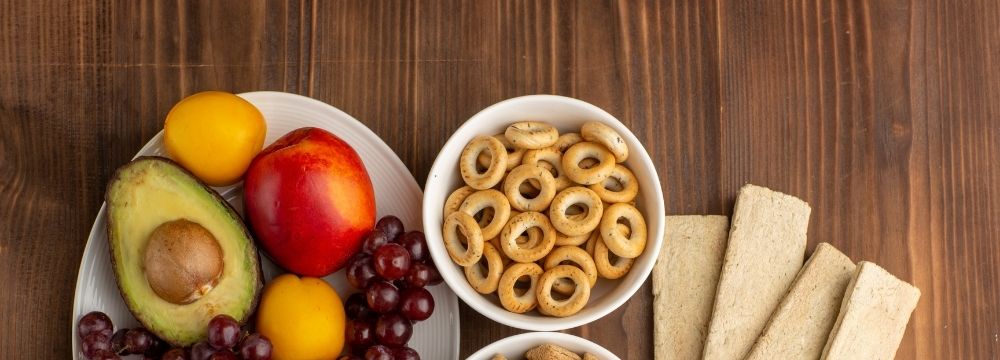
There are several ways that sugar is added and ultimately labeled in the products we eat and drink every day. For this reason, it’s essential to discuss how sugar is metabolized in the body and if certain sugars are better than others. For this discussion, we will limit our analysis to the two most ubiquitous forms of sugar: glucose and fructose. Glucose is what you find in granulated sugar, honey, and many other products. It is the traditional sweetener you think of. Fructose, on the other hand, is typically found in fruits and vegetables but is also added to many products in the form of high-fructose corn syrup. You often find these in sodas, processed foods, and even bread products to sweeten them.
Both are labeled similarly, and both, in higher quantities, are problematic. But why are items that contain fructose typically lower on the glycemic index? For example, agave–based sweeteners are often touted as a better option for people with diabetes because they don’t spike blood sugar like natural sugar (glucose). This seems like a win-win situation for anyone looking to enjoy the sweetness they crave without the problems associated with that consumption. However, most don’t realize why fructose does not spike blood sugar like glucose. This is because fructose needs to be metabolized by the liver before it becomes glucose and is released into the body. This puts significant strain on the liver to the point where it can even cause nonalcoholic fatty liver disease and even cirrhosis if consumed in extreme quantities over the long term.
Does That Mean All Fructose Is Harmful?
No, this is not the case at all. With a few exceptions, such as very high-sugar fruits, most fruit sugars, when consumed as part of the whole fruit, comprise a very nutritious package. The skin and flesh of many fruits have specific vitamins and fiber that genuinely make them healthy. They should only be avoided if they fall high on the glycemic index, like mango, banana, raisins, and pineapples, to name a few.
Does That Mean I Have to Stick to Regular Sugar?
The short answer is no. Fortunately, we have more sweetening options than ever before. Natural sugar can be consumed in moderation as a natural part of the foods we eat, while added sugar should be avoided. Foods and drinks that have added fructose should be avoided. While many products contain artificial sweeteners, these too should be avoided, or at least moderated, since they are far more potent than regular table sugar. They may trigger cravings for more sugar despite having no calories.
Instead, consider sweeteners such as Monkfruit and other naturally derived no or low-calorie options. Or drop sweeteners altogether.
Everything Tastes So Bland, Though!
You have likely overpowered your taste buds over the years by eating highly processed foods. These foods contain so much sugar and sodium that you are often desensitized to naturally sweet products. For example, your average tomato may taste like cardboard even though it has a good deal of sweetness. You’ll find that this blandness will continue for a few weeks, but eventually, you will enjoy fruits and vegetables much in the way you enjoyed products with added sugar. If you ever go back to highly processed or sugary foods, you’ll probably find they are overwhelmingly sweet or salty. Reaching this point is a significant milestone – you’ve rebalanced your taste buds and can now enjoy healthy foods.
More General Advice on Sugar
Ultimately, sugar is an addictive substance and is the fastest way to get off track after a successful bariatric procedure. Anything that introduces sweetness into your diet can be problematic, so we always suggest drinking water and eating naturally sugar-free foods. You can often flavor these items with sweetener-free options. That said, we also understand that you aren’t signing up for a life of miserable eating, and you want to enjoy what you eat. As such, you can eat a wide range of food, even those that contain some sugar, if you moderate and track your consumption. We do not want you to suffer in your postoperative lifestyle, and depriving yourself of every indulgence is a quick way to lose motivation and turn it back to the foods you have been told to avoid.
Of course, this is also great advice for life in general and all your activities, including exercise after bariatric surgery. We want you to enjoy a varied lifestyle full of new experiences if they fall within the giant umbrella of moderation.










